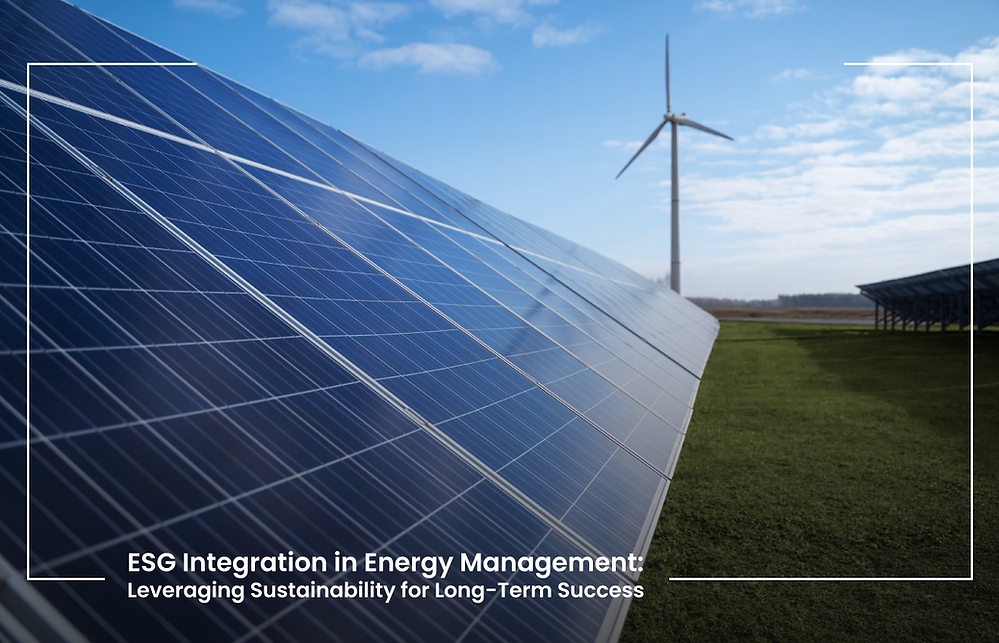In today’s world, it is impossible to overestimate the significance of sustainability and ethical business practices. The idea of integrating the environmental, social, and governance (ESG) framework has significantly gained prominence as organizations try to reduce the effect on the environment and solve social and governance challenges. Nowhere is this more important than in energy management, where conserving resources and cutting carbon emissions are top priorities.
Energy management is the process of monitoring and regulating energy usage to minimize consumption and maximize efficiency. It plays an essential role in meeting ESG standards, which is the factor of sustainable development most investors and clients look for.
Let us delve into how energy management addresses ESG requirements.
Addressing Environmental Concerns with Energy Management
Energy Efficiency
Effective energy management involves improving the efficiency of equipment and operations, and reducing energy wastage. Its scope extends across the entire supply chain of an organization. It reduces the energy loss due to inefficient operations and equipment, thereby the need for generation of energy to compensate for the loss.
Another effective method to optimize energy consumption is monitoring and analysing energy usage in real-time. Companies can deploy advanced technologies such as wireless controllers, IoT platforms and data analytics. The information generated, allows system operators or facility managers to make accurate, quick decisions on modulating the usage of equipment, reducing unnecessary energy expenses.
Inefficient equipment, buildings, and vehicles emit greenhouse gases. The real-time monitoring of equipment helps improve the performance and longevity of the equipment and it reduces pollution significantly.
Adoption of Renewable Energy Sources
Transitioning to renewable energy sources is a significant step towards solidifying sustainable growth. Advanced technologies have optimized renewable energy extraction and storage, making it a feasible solution. They include resource assessment and deployment, materials performance improvement, system optimization and sizing, instrumentation and control, modelling, and simulation.
Energy Management Improves Compliances
Renewable energy helps companies bring their energy bills down drastically as they are cost-effective compared to other energy sources such as oils and natural gas. Technological advancements in renewable energy harvesting systems have improved the efficiency of energy extraction. Thus, investments in these systems are high yielding. In addition, companies that adopt programs for energy production from renewable sources meeting ESG standards can qualify for federal government tax credits, grants, and loans.
Internal Policies
Corporations can define their overall energy management objectives through internal policy development procedures. They allow businesses to identify significant areas of energy consumption, lay out action plans, and implement them for optimal energy utilization. These measures may include
- Implementation of energy management systems
- Procurement of energy-efficient products and services
- Facilities and business process design for energy performance improvement.
Stakeholder Engagement
Owing to the dynamic nature of environmental changes and industry standards, engaging with stakeholders is essential. It helps businesses keep them updated on reforms in regulations and compliance requirements.
In conclusion, energy management plays a crucial role in driving sustainable growth of businesses. It addresses environmental concerns, slows fossil fuel depletion, and reduces energy bills.
AccelESG specializes in end-to-end energy management services beginning from energy assessments to deployment of energy solutions to real time tracking of consumption and savings.

